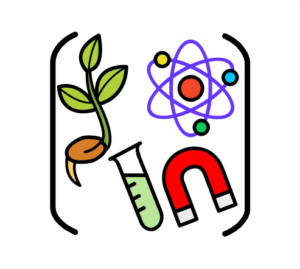Science
The Science Curriculum at The Pines:
The science curriculum aims to help develop pupils’ sense of excitement and curiosity about science and the natural world. It aims to provide them with the skills and knowledge to be able to use science to be able to solve problems, answer scientific questions and to predict how things will behave and why. Through fun, practical lessons and pupil-led exploration we aim to inspire and excite our pupils and nurture their curiosity to encourage them to ask questions and develop the skills they need to answer those questions. We want to develop pupils’ scientific enquiry skills where they will be able to use a variety of resources and scientific equipment to be able to answer scientific questions and find out about the universe we live in. We aim to promote and develop transferrable skills such as observation, communication, working independently and collaboratively to ensure we prepare all pupils for their next stages in life.
Intent:
At the Pines, we want all children to be naturally curious about the world around them and to embrace their sense of wonder about natural world. We aim to help children develop an understanding about the world which they live in and prepare them for living increasingly scientific and technological world. Scientific enquiry skills are embedded in each topic, in science lessons we aim to encourage the development of transferable scientific skills including; observing, measuring, predicting, experimenting, problem solving, communicating, explaining and evaluating. We aim to develop cross curriculum links where ever possible, particularly with Maths, Geography, Design and Technology, P.E and Music. The curriculum is organised into topics which are revisited and developed throughout the curriculum to allow children to build up upon their prior learning, committing knowledge into their long-term memory with the aim for them to achieve a greater depth of understanding. We want pupils to be able to develop the skills to ask and answer questions, using appropriate vocabulary and process of enquiry. The curriculum will enable pupils to see the relevance of science in their lives and the variety of science related industry and careers they could potentially go into.
Implementation:
All pupils have discrete science lessons across all Key Stages. We follow the National Curriculum and have designed a bespoke curriculum which is documented through knowledge maps and medium term planning for each topic across each Key Stage. Science topics are taught in an order that makes sense in relation to other subject topics and where appropriate are mapped to the English topic. Clear knowledge maps allows teachers to see the learning journey across Science for learners across all pathways which enables them to know what prior learning and teaching activities have taken place. Lessons are planned to enable children across the school to have hands-on experiences and take part in a range of practical experiments. Scientific enquiry takes place in every topic across the school and there is a coherent progression in the development of these skills across the year groups. Understanding in science is assessed regularly through a variety of formative assessment methods. Misconceptions are addressed immediately and where necessary, teachers will adjust subsequent lessons based on their assessments. We have a well-stocked science resource room and fully equipped science laboratory which allows teachers to easily access the resources required for high quality teaching. Where appropriate, high quality fiction and non-fiction texts are used to compliment science topics.
The key aim of the Early Years curriculum is to provide high quality play with planning based on themes allowing pupils a holistic approach to learning. Planning the prime and specific areas of understanding the world and personal development aims to guide the pupils to explore the natural world, their own personal care needs, understanding the importance of healthy foods as well as their scientific enquiry. Within the continuous provision (activities provided throughout the day indoors and out) children have the opportunity to engage in activities that encourage them to explore, problem solve, observe, predict, think, make decisions and communicate about the world around them by engaging with play that is child led, play which is sensitively supported and extended by adults and play that is guided towards specific educational outcomes.
Impact:
Students enjoy and engage in meaningful science lessons which help them to understand themselves and the universe around them. All learners are suitably challenged and achieve success, regardless of their starting points. Pupils are able to experience ‘hands on’ learning and learning outdoors through our allotment and Forest School. Pupils develop a range of wider transferable skills which support them across other curriculum areas and for life after The Pines. They are able develop a richer vocabulary which enables them to communicate their ideas and understanding more effectively. Science lessons are relevant to all pupils and helps to develop their cultural capital. Pupils in Key Stage 4 have the opportunity to achieve an accredited qualification in science up to GCSE level. Pupils have experience of the possibilities for careers in science and the importance of science in their lives.
